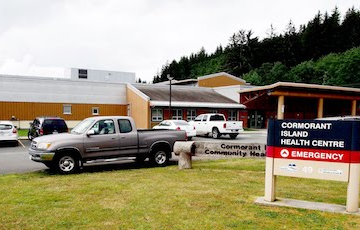Emergency services are available 24 hours a day in regional and community hospitals across the Island Health region. We also offer 24-hour emergency services, which may be on an on-call basis, in remote hospitals and some community health centres.
As of March 28, 2025 masks are no longer mandatory in our facilities. If you are feeling unwell, we encourage you to wear a mask and practice healthy habits. For more information, please read BC Government's guidance on masking.
When should I go to Emergency?
If you or someone in your care is experiencing a health crisis or has an urgent medical condition do not hesitate to come to the nearest emergency department or call 9-1-1.
On arrival at the emergency department you will be assessed by a triage nurse and seen by a physician on a priority basis.
Examples of urgent medical conditions include but are not limited to:
- signs of heart attack or stroke
- extreme pain
- severe bleeding
- broken bones
- shortness of breath or respiratory distress
If you aren’t sure if you have an urgent medical condition, you may wish to call Healthlink BC at 8-1-1 to talk to a Registered Nurse and determine whether you should go to the nearest emergency department for treatment.
How long will I wait?
We use a triage system that gives priority based on the emergency and urgent care you require. This can result in delays if you do not need urgent care. Triage nurses will try to give you an estimated time, but even wait times can change at a moment’s notice.
You may experience two kinds of waits:
The first wait may occur after you are assessed by a triage nurse.
- the triage nurse determines the urgency to see a physician based on Canadian Triage and Acuity Scale national guidelines
- how long you will wait to see a physician will depend on your assessed acuity level and on how many patients are in the Emergency Department with higher levels
- it is important to note that wait times are not a reflection of the number of people waiting; they reflect how sick other patients are in the Emergency Department
The second wait may occur if a physician has determined you need to be admitted to hospital or transferred to an alternate facility for treatment.
- You may wait in an ER bed or stretcher for diagnostic tests and/or for an appropriate bed to become available in the hospital or while transfer to an alternate acute care facility is being arranged
- during this time, you are under constant care by medical professionals
Avoid Unnecessary Visits
While emergencies are unavoidable, here are a few simple things you can do to avoid unnecessary visits to the hospital:
- for non-urgent care, contact your family doctor
- call HealthLinkBC at 8-1-1 for confidential health information and nonemergency services
- familiarize yourself with the locations and hours of walk-in clinics
- make sure your prescriptions are up-to-date
- make sure you have basic pharmaceuticals on hand to control children’s fever and pain
- get a flu shot and wash your hands often to avoid spreading and contracting viruses and bacteria
- take basic safety precautions: Buckle up, don’t drink and drive, don’t leave open flames unattended and keep alcohol and potential poisonous substances out of reach from children



